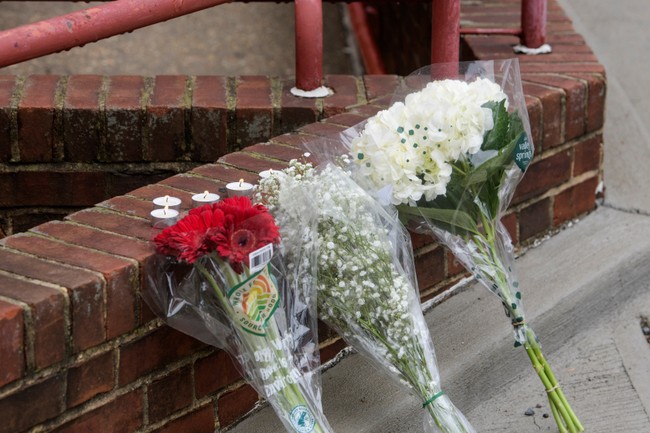
The murder of Sarah Milgrim and Yaron Lischinsky outside the Capitol Jewish Museum in Washington on Wednesday night was a heinous act of antisemitism. My colleague Rick Moran pointed out the left-wing anti-Jewish rhetoric that led the shooter to snuff out the lives of two young Israeli embassy staffers.
Tributes to Milgrim and Lischinsky have poured in from all corners, along with rightful condemnations of antisemitism. My colleague Catherine Salgado shared several of them in a piece on Thursday.
However, one of those statements managed to dishonor one of the victims. Solly Kane, the president and CEO of the Jewish Federation of Greater Seattle, posted a letter on the group’s website.
The letter read in part (with emphasis added):
While news reports have focused on the fact that they were Israeli embassy staff, to be clear: two people—one of them an American Jew from Kansas—were killed after attending a Jewish community event, outside a Jewish museum, in 2025, in the United States. For many in the Jewish community, this is an actualization of our worst fears for Jewish safety coming true. Antisemitism and antisemitic rhetoric have escalated precipitously in recent years to historic levels. When rhetoric against Jews is tolerated and normalized in society, it can lead to violence like what we saw last night.
Now, it’s possible to give Kane the benefit of the doubt and suggest that maybe he was singling one of the victims out because Milgrim was American, but it’s more likely that he mentioned that one victim was an American Jew because Lischinsky was a Messianic Jew, that is, a Jewish person who believes in Jesus (or Yeshua, to use His Hebrew name.)
Recommended: Stopping Evil Then and Now
Messianic Judaism is a touchy subject in the larger Jewish community, but One for Israel has an excellent, extensive history that’s worth reading. My Jewish Learning drips with condescension when it characterizes Messianic Judaism as a movement that “has tried to straddle the line between Judaism and Christianity.” The headline of that explainer uses mock-quotes to ask, “Who Are Messianic ‘Jews’?”
In its profile of Lischinsky, the Jewish news site Forward explains:
Messianic Judaism is a religious movement made up of people who identify ethnically and culturally as Jewish and believe that Jesus — whom they call Yeshua — is the promised Messiah.
Most adherents consider themselves Jewish, a position rejected by the mainstream Jewish community but embraced by congregations like Melech Ha’Mlachim [where Lischinsky worshiped].
Forward adds that “most Messianic congregations in Israel are locally run and culturally Jewish, with Torah readings, Hebrew prayer and Jewish holiday observance.” Many, if not most, American Messianic synagogues do as well.
The controversy over Messianic Judaism isn’t lost on Forward:
Still, Lischinsky’s religious identity has stirred confusion in the wake of his death. Ronen Shoval, dean of the Argaman Institute in Jerusalem, where Lischinsky participated in a yearlong program, described him to The New York Times as “a devout Christian” who “tied his fate to the people of Israel.” Israel’s ambassador to Germany, Ron Prosor, also referred to him as Christian in a tribute posted to social media.
But [Lischinsky’s friend David] Boskey pushed back on that framing. He said that Lischinsky, like others in their congregation, saw himself as a Jew who believed Jesus was the Messiah — and that this belief did not negate his Jewish identity.
Rabbi Matt Rosenberg of Restoration Seattle, a Messianic synagogue, called Kane out for leaving Lischinsky out as a Jewish person:
To clarify the Jewish Federation of Seattle’s statement—Let’s be clear: Two Jewish people were killed after attending a Jewish community event, outside a Jewish museum, in 2025, in the United States. Messianic Jews are Jews—and when antisemites come, they come for us too.
Saying Kaddish today for Sarah, Yaron, and their families, along with Jewish people worldwide AND our Messianic community in Israel.
Side note: I’m friends with Rabbi Matt on social media, and I’m hoping to get him on “Faith All Over the Place” soon to talk about Messianic Judaism. (If you’re reading this, Matt, let’s make it happen!)
I can’t bring myself to believe that it was an oversight that Kane referred to one Jewish person; I believe it was a deliberate slight against a Messianic Jew. It dishonors a man who considered himself a faithful Jew and who was a victim of a violent antisemitic act. And that’s sad.












